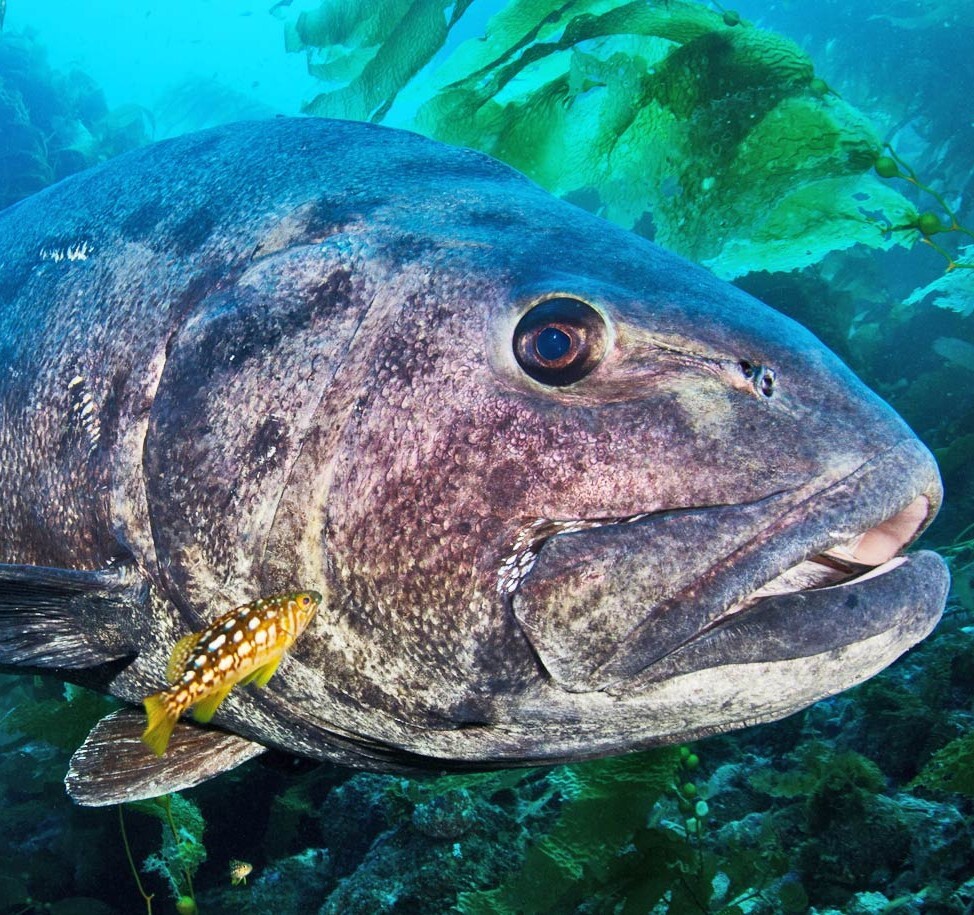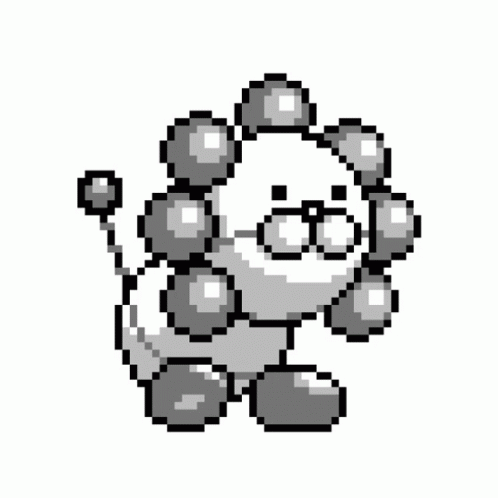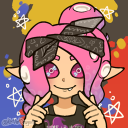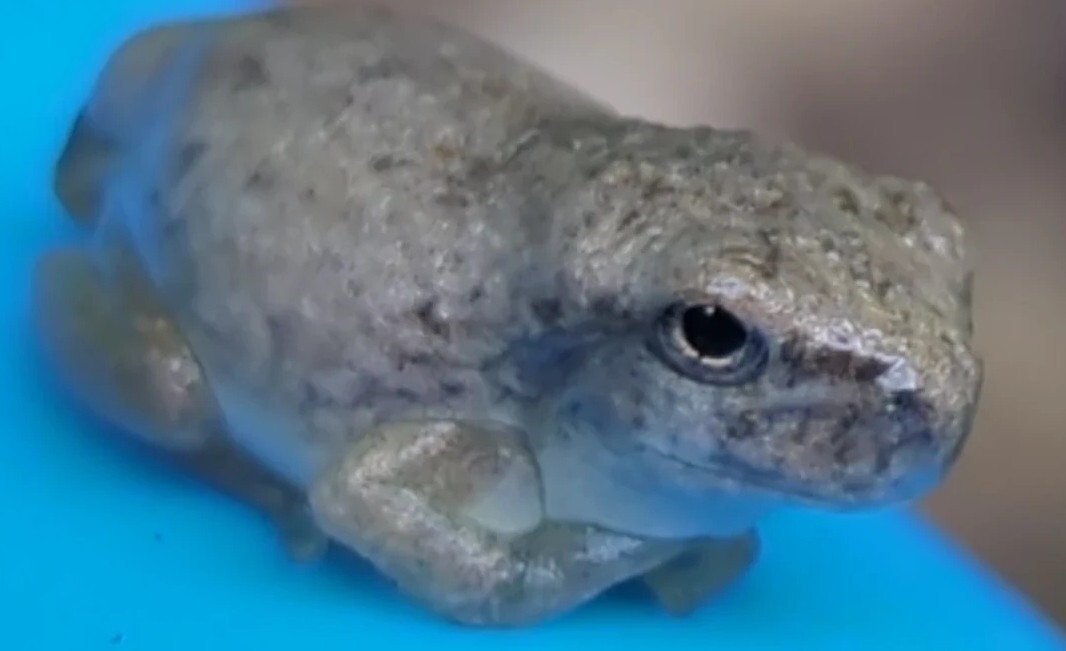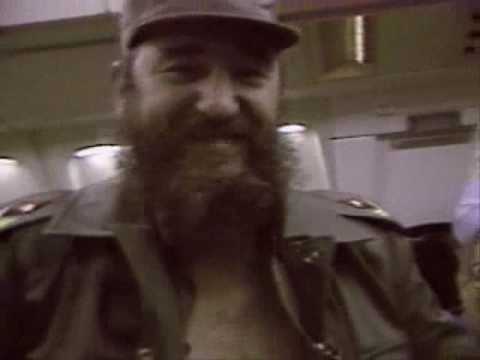WHERE TO GET THE BOOK: http://libgen.is/book/index.php?md5=F6B31A8DAFD6BD39A5986833E66293E6
People have been kind enough to link the audiobook in past posts, so hopefully they'll do that here, too.
CHAPTER ONE: WHAT IS AUTISM, REALLY?
In this chapter, Dr. Price discusses what the popular perception (read: stereotype) of Autism is, as opposed to what it actually is, and how it is just as much a social thing as it is a medical thing. How Autism often goes undiagnosed in people of color, women, gender nonconforming people, etc. He discusses the concept of neurodiversity and how it applies to ASD and ADHD people, AuDHD people, schizophrenics, BPD people, people deemed "low intelligence" or "low-functioning," etc. and how neurotypicality is not so much a described set of behaviors as an oppresive social ideal that literally everyone deviates from in some small way at least.
There's a heartbreaking passage in here where Dr. Price recounts his father tearfully revealing his cerebral palsy and seizure disorder to him as if it was a source of secret shame, how this is tragically rational because if he didn't hide it it might lead to losing his job or other forms of discrimination that disabled people of all stripes face. How avoiding a label can be a social asset in a world that deems you unfit for public life in many ways if you're labeled autistic. How even a late diagnosis can open you up to a world of new possibilities, and get rid of toxic shame you've had for a long time.
There's discussion of how the stereotype of Rainman Bazinga Sheldon ![]()
![]() is tied into the roots of Autism's first descriptions in medical literature, and how Hans Asperger played a role in this with his eugenicist beliefs and willing cooperation with the Nazi regime to exterminate children dubbed Autistic (as opposed to "useful" ones that could be trained to fit in as a lower class of person -- essentially "Asperger's" meant you got to live) and how that harms minority Autistics, causing them to go undiagnosed or forcing them to mask in more fundamental, soul-crushing ways, to avoid social misunderstandings that can literally be deadly for them.
is tied into the roots of Autism's first descriptions in medical literature, and how Hans Asperger played a role in this with his eugenicist beliefs and willing cooperation with the Nazi regime to exterminate children dubbed Autistic (as opposed to "useful" ones that could be trained to fit in as a lower class of person -- essentially "Asperger's" meant you got to live) and how that harms minority Autistics, causing them to go undiagnosed or forcing them to mask in more fundamental, soul-crushing ways, to avoid social misunderstandings that can literally be deadly for them.
From there we get a medically and socially up-to-date definition and breakdown of what Autism is, a simple explanation of some of the neurobiology involved, the neurological markers like focus on details and diminished ability to prioritize and differentiate stimuli and delayed emotional processing, and the various medical, psychological, and social impacts Autism has on those who are Autistic. There's a lot in here on neurodiversity, intersectionality, how stereotypes were formed, how to start recognizing them as such. There's also a lot on how unfairly the medical community and especially health insurance treats neurodivergent people, and so on.
Most importantly, this is where Dr. Price first advocates for the notion of Autistic self-determination. He stresses "self-determination" or "self-realization" over "self-diagnosis" because of the social aspect of Autism, and promises to expand on this notion further, which indeed he does.
So, discussion questions:
- What did you think of this chapter? Is there anything new you learned? Anything that really activates those almonds, gets the noggin joggin'?
- Are there any passages that really stuck out to you? Something you think warrants deeper discussion or really crystallizes something you were struggling to express or share?
- Any certified "literally me" moments that touched you?


- Anything you hope to explore further in upcoming chapters?
Tag post to follow, plus my thoughts in another post.
My own responses:
-
When I started reading this chapter for the first time, I was like "okay, finally, I'm going to find out how my ADHD is distinct from autism so I can glean what I might gain from this book" and ended it with "I am crying so so hard because I've been a masked autistic all of my life and things are making sense for the first time." I've tried discussing these feelings with my shrink (who dismisses the concerns due to the clinical approach to autism in the US right now) and my friend with a psych PhD (also dismisses my concerns because I know it's socially inappropriate to hit people or take my clothes off in public and wouldn't benefit from ABA) and my ADHD specialist (who says 'yeah maybe, explore it if you feel it will help you'). The explanation of some parts of the brain being essentially overactivated while others are underactivated makes sense to me. I have light and sound sensitivity issues, and frequently get upset (in a way I can't really express to anyone) about how my clothes are uncomfortable to the point of causing me pain sometimes. It led to me recognizing my frequent crying episodes (alone, where nobody can see or hear me) as autistic meltdowns, my long depressive slumps as shutdowns, and it was refreshing learning that autism is a very diverse thing and it's not just the white guy who likes trains stereotype. The discussion of Dr. Asperger being an evil eugenicist piece of shit is important too, as it informs a lot of stuff later on.
-
My passages are just two he just like me fr quotes: from Dr. Price: pg 32: "My sensory system is used to scanning the environment, to determine whether I'm alone and thus 'safe' enough to be myself." pg 35 from the patient "Crystal" pg 35: "Getting smaller and asking for nothing is how I kept people from calling me sensitive so often... That and assuming that if I was bad at something, it's because I was never, ever gonna be good at it. Better not to ask."

-
In upcoming chapters, I recall a lot of shit that made me cry and rereading is causing more crying. So looking forward to crying more I guess.
looking forward to crying more I guess.
yeah, it was hard to get started on this chapter and then to finish it because it's all just so emotionally heavy
I would probably dip out entirely if it weren't for the book club, and I hope it'll be okay that sometimes I'm very late to contribute to the discussion because it's hard getting through such painfully meaningful material.
neurodivergent people and unnecessary apologies name a more classic combo
I'm glad this book club is helping some people stay with it. I'm glad I could do something for someone else, however small.
-
What did you think of this chapter? Is there anything new you learned? Anything that really activates those almonds, gets the noggin joggin'?
One thing stuck out like a sore thumb, and that is label avoidance. My parents underwent the strangest transition from being evangelical anti-vax bush-supporting republicans when I was younger to (ostensibly) agnostic liberal CNN-watchers. And with the former era came being terrified of anything that would be seen as weak or inferior. Holy shit my life would be so much different if I knew the reason I was different as a kid. Godamn
Are there any passages that really stuck out to you? Something you think warrants deeper discussion or really crystallizes something you were struggling to express or share?
So the discussion about Aspergers- this really could be a stretch, but I’ve met more than a few people who have identified with Aspergers, and some of them have been guys who have claimed to be loners and they don’t seem like particularly happy people. Most of them are generally older, so I’m assuming (I know I shouldn’t but here I am) that they were sort of given that identity without an opportunity to say it fit. Idk I just want to know that everyone with agency had a choice.
I say this because I was sorta given this assignment, but now I’m learning there are other options. And I’m very sad I’m learning it now because I feel like I’ve missed out on life 🥲 but all we have is now I suppose.
Any certified "literally me" moments that touched you? denji-just-like-me k-pain Anything you hope to explore further in upcoming chapters?
Autistic burnout is probably why my head is where it’s at today
I didn’t see anyone mention of how all of the memories you have repressed throughout your life will attack you. Can anyone confirm whether this is normal
For the memory part I actually asked my mom what I was like as a kid just the other day, hoping to jog memory and she just said I was a "normal kid" id not a little bit too goofy. I doubt that's super accurate because I can remember having outbursts and meltdowns. But I also think both my parents are undiagnosed ND.
I too was a "normal kid", despite choking colleagues, trying to push bullies off windows or having random meltdowns because "the rug is the wrong colour for today" or "that plant is the wrong texture". Pretty normal stuff.
I very mistakenly asked my mom and she said I was a normal kid but something suddenly changed when I became a teen and “they didn’t know what to do with me”
Didn’t get much empathy from my family when bringing this up lol
But the more I try to talk about this stuff openly, the more the mask of liberalism comes off. They’re all OK with autism acceptance until it personally inconveniences them or might have some impact on the bottom line. I also truly don’t know if people understand what a spectrum actually means. I get a lot of “oh maybe but you don’t have any of these traits so you’re not autistic.”
Might just have to get a diagnosis
I didn’t see anyone mention of how all of the memories you have repressed throughout your life will attack you. Can anyone confirm whether this is normal
Idk if it's "normal," but it certainly happens to me too
I can guarantee you those men aren't really loners by choice. I'd probably describe myself as a loner but the loneliness is killing me inside, and I've just gotten so used to being rejected I usually don't bother trying to pursue friendships. Doesn't help that the RSD makes rejection feel like I'm being stabbed in the heart.
I'm here I promise. I skimmed a bit thorough the comments and will try to get back to them later. But I'm in a huge funk right now and probably won't participate in this particular discussion. That's for the tag tho!
Yay it's time! I've already finished the book but I'll ride along with you. This book really opened my eyes about everything in my whole damn life.
I really relate to Crystal's story. The only reason I've reached this point of self-realization, is because of an undeniable burnout that doesn't seem to be like "normal" burn outs. I graduated college in 2018 and have simply never recovered and have never been able to work full time (or at all, lately).
“Now I know I’m Autistic, but I kinda found out about it too late,” she says. “If I tell people, they don’t want to believe me. I have my life together too much for them to realize how hard it all is. Nobody wants to hear now about how hard it’s always been, always still is, frankly.”
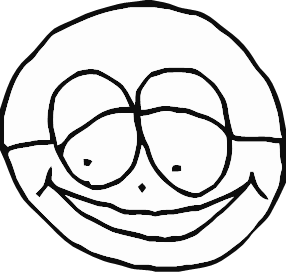 fuck
fuckWhat's hard is that the rest of my family is some type of ND, but they all work (quite miserably, however). So I don't think they'll ever understand. In reality part of what burnt me out so badly was that I was trying to be like them. When Price spoke about his dad creating self-destructive defense mechanisms, it reminded me of both my parents. I think my dad is a big ball of compartmentalized dissociated fragments to numb his pain, and he fully bought into the fascist American Dream(tm) hustlegrind way of life. As a kid I looked up to him and wanted to be as hard working as him. When I got my first and only job, it was because my mom got it for me at her place of work. I worked alongside her and even in her shoes. She internalized the fuck out of everything (while my dad externalized it and behaved very selfishly) and basically took it upon herself to do everything perfect for everyone. Then she tried passing that onto me. Other coworkers would do a half-ass job, as you should. But if I ever did that, my mom would get mad at me because she genuinely felt like it was our responsibility to hold the whole place together (lol). She ended up giving me so much perfectionist anxiety. I just couldn't tough it out like they could. I really tried, but I couldn't. Just trying to get up early in the morning every day and work 8 hours, which my parents have done every single day of their lives for their entire adult lives - made me want to unalive myself. I genuinely did not want to be around anymore if it meant my life was going to be one long miserable exhausting slog. But yet they've done it. So it fills me with shame that I can't even do the most basic of "adulting" that they can. It's hard for them too, isn't it? So why can't I do it? And it fills me with fear, too, that I won't be able to keep up my low-key lifestyle forever, and will be forced into an unsustainable burning situation (where everyone around you is going to say you're being dramatic/get over it, like that girl crying on TikTok about work life). I'm kind of stuck atm, desperately hoping I can be a housewife or something because I can't see myself functioning like you're "supposed" to. My mom tells me I just need to see a therapist but there aren't any that would get it. When I filter for autism in my search results all I get are people who assess children. Sigh.
But then it's like, okay say if I get assessed, then what? It's not like ABA would be of any use to me. I can try to get on disability but that's hard af and could take years and if I get married it might go away anyway. What's the point? I'm an adult and you're just expected to help yourself. So that's what I've been trying to do, through reading books and trying to listen to my body. I'm hoping that others understand. I don't think my mom likes me to think of myself as disabled, but that's probably because it would mean she has to reckon with herself being disabled too (which she is lol).
Also yeah the fact that it all started with that Nazi collaborating Asperger guy plus the guy who invented gay conversion therapy.... I'm not sure if it would have even helped me if I was diagnosed as a kid. ABA would have basically just been a legalized form of torture, moreso than just regular public school is already torture to kids like us. Either way you've got some form of PTSD. Yay? :|
And I agree too with the underreactive-overreactive brain thing. I think the key to defining autism is the "spiky profile". Really strong points, really weak points. What those are can vary massively but the point is that the profile is spiky like that. And how disabled you are by it, depends on where your weaknesses are and how they affect your daily life. It's probably a better way to look at it than "level 1, 2, 3", "high-low" or whatever.
Spiky profile is a good way to conceptualize it. My sensitivity to noise and bright/flashing lights can be deeply upsetting emotionally but not debilitating, I'm incredibly good at reading and comparing sets of text. I am completely fucking clueless and clumsy as fuck in any social situation and missing the finer points of social interaction is deeply alienating for me. Very few texture/taste/pressure triggers for me, but those that do really set me off hard. Tried a weighted blanket once, immediately started panicking and threw it off. Can stand most unpleasant flavors and smells but raw celery makes me gag and lots of perfumes send me into a low-level sensory meltdown. Generally speak in an annoyed-sounding monotone when I'm speaking for myself, but have excellent vocal control and mimicry and can rattle off a script with all sorts of appropriate embellishment and emotive tone. Peaks and valleys.
Between this book and tiktok autism-awareness videos, I'm growing more convinced that not only am I on the spectrum, but almost everyone in my immediate family is as well. Our behaviors tick way too many autism-specific boxes.
Sorry for the selfish request, but is anyone able to share the first and the last sentence of this chapter, so I can find the right start and end in the audiobook? The audiobook doesn't signpost the chapters, unfortunately.
When Crystal was young, she exhibited many behaviors psychologists today would recognize as traditionally Autistic: she lined up toys in rows instead of playing pretend with them
and
I hope that even if you have specific stances on which terms you like and dislike, you can respect my interview subjects’ agency to name themselves, as I have strived to do.
Thank you so much, this really does help. Last time I got carried away and listened for way longer than just the first chapter.
Turns out I had made it to chapter 2, and the audio book does signal chapters, but I had paused it just before the chapter break! Maybe I'd heard the break in narration and recognised it as a good place to stop. Will write up my thoughts shortly.
TAGS:
CARCOSA@hexbear.net (a sticky would be appreciated)
ReadFanon@hexbear.net
Othello@hexbear.net
Wertheimer@hexbear.net
roux@hexbear.net
voight@hexbear.net
LarsAdultsen@hexbear.net
BreadMaster5000@hexbear.net
NoLeftLeftWhereILive@hexbear.net
Pluto@hexbear.net
PointAndClique@hexbear.net
Jobasha@hexbear.net
FodlegBob@hexbear.net
Magician@hexbear.net
ByteFoolish@hexbear.net
YearOfTheCommieDesktop@hexbear.net
Orannis62@hexbear.net
homhom9000@hexbear.net
the_itsb@hexbear.net
optissima@lemmy.ml
AdmiralDoohickey@lemmygrad.ml
AlbigensianGhoul@lemmygrad.ml
sevenapples@lemmygrad.ml
JohannaChittarra@hexbear.net
voight@hexbear.net
ForgetPrimacy@lemmygrad.ml
lapis@hexbear.net
I would appreciate being added to this list.
I've heard this book mentioned but knew nothing about it. Reading your thoughts on this chapter, I think I could get a lot of benefit out of this.
Oh dip, is it too late to join? This book has been on my to-read list for awhile (thanks, ADHD), this seems like a good reason to finally start it.
Am I too late to be added? Just finished the book, would love to participate.
What did you think of this chapter? Is there anything new you learned? Anything that really activates those almonds, gets the noggin joggin'?
Well this chapter essentially deconstructed my general thought process, so that was uuuuuh, kind of a special? It prepared me for my diagnostic process... My GP referred me to what ended up being a pediatric clinic for ASD, which was a bit discouraging.
Are there any passages that really stuck out to you? Something you think warrants deeper discussion or really crystallizes something you were struggling to express or share?
The entire passage about children learning to hide their autistic traits from a young age, having their parents not getting a diagnosis to help their child "rise above" their limitations. I was a really sensitive child, I was bullied until I forgot how to be myself. I got scolded in class for not listening, even if I already understood everything. Even if my teacher recommended it, my parents didn't want me to get diagnosed for ADHD because they didn't want me to use it as a "crutch". I'm still struggling to understand how society only recently learned that the long-lasting effects of not getting a diagnosis to get the proper help can really mess with people and that we still need help even if we manage to "swim" and survive.
Any certified "literally me" moments that touched you?
Most of us have to figure out ways to conceal our stimming and special interests. We might maintain a secret blog about our interests, for example, or find socially acceptable ways to get our energy out, such as long-distance running or fidgeting with our phones.
As an ultra-trail runner, I was screaming in my car when I heard that quote in the audiobook. I got into ultra-endurance sports because it made me find peace with myself, made me feel accepted and I could be intense about it without it being too weird.
I took a break from hyperfixating on Autism research because I reached a point where the only thing that could answer the question was by interviewing my parents and other relatives.
The results are in - I am definitely Autistic. This may have major implications for the improvement of my mental and physical health. Reading this book is what made me realize it. Self-determination, indeed. Thank you again, @FourteenEyes@hexbear.net.
Glad I could help. This book had such an impact on me I wanted to make sure it reached others, too.
Thanks for sharing this. I already had some self realization when my kid was diagnosed, but this book has been incredibly eye opening.
Still processing a lot of this, so I don't have much to say right now. Apparently I have most of the traits of "female autism" so I never would have gotten a diagnosis anyway being as a young boy.
Had been looking forward to the book club reading on this. I e seen a few people mention how this book really opened their eyes and o had been thinking of reading it for a while. So thanks for organizing this.
What did you think of this chapter? Is there anything new you learned? Anything that really activates those almonds, gets the noggin joggin'?
I think one of the biggest things is how differently autism can manifest itself in people. This is something that I've read about in a limited capacity before, but it really makes me think not just of my own experiences, but of the people around me. Being a POC there's still a huge stigma surrounding autism. Autism is something that is prevalent on my mom's side of the family as recently a couple of my cousins have had kids diagnosed with autism and it's always rubbed me the wrong way how they've approached those diagnoses. I also realize that I myself and even several more people in my family would probably fall somewhere on the spectrum.
Are there any passages that really stuck out to you? Something you think warrants deeper discussion or really crystallizes something you were struggling to express or share?
I never realized that Asperger worked so closely with Nazis or based much of his findings on eugenics. And it think it really highlights the dangers of how academics working in a society, which already excludes "outsiders", are able to set the standards for how something like autism is diagnosed and treated.
Any certified "literally me" moments that touched you?
Certain aspects of Crystal's experience for sure. College was a very similar experience for me. I started out as a full-time student, but after about a year I started dropping classes or just straight up registering part-time. I was 24 in my last year in college and even though I was close to graduating I just couldn't do it anymore and ended up dropping out.
Another is being a workaholic to avoid social situations. Especially at my old job which was more customer facing than my current job. But I even do it to avoid talking much with coworkers. It's a bit harder to escape now though. At my old job I was a computer repair technician and we had a small repair room with its own locking door and I often found solace sinking hours in there working on customer devices even though I was technically supposed to just connect it to a remote service. The speed and quality of my work bought some leeway with my managers since my customers usually gave me good reviews. And while social isolation wasn't the only reason I would lock myself in the repair room, I did enjoy the work, it certainly did become a crutch for me at some points.
Anything you hope to explore further in upcoming chapters?
Just reading up on the diverse forms of autism and seeing what else I can learn that I can apply to my life as well as how I perceive others.
What did you think of this chapter? Is there anything new you learned? Anything that really activates those almonds, gets the noggin joggin'?
I liked this chapter and found it informative. The description of the autistic neurotype was clear and useful. That being said I also really appreciate the injunction that boiling autism down to just brain wiring is reductive (the 'born this way').
Are there any passages that really stuck out to you? Something you think warrants deeper discussion or really crystallizes something you were struggling to express or share?
These questions make me consider switching to the print/text rather than the audio, since the audio is a constant stream and the app I use makes it clunky to revisit individual sentences or paragraphs.
Any certified "literally me" moments that touched you?  
I have to say no, wrt this chapter.
Anything you hope to explore further in upcoming chapters?
Not sure if it comes up in later chapters but learning more about the intersection of autism and other disabilities, how they resemble one another, overlap and differ.
Yes! I will. Haven't torrented in ages so will get that set up. Thanks for the nudge.
apologies for the late addition, it's been a rough week.
Any certified "literally me" moments that touched you?
He had erected an entire life around hiding who he was, and his defensive mechanisms had slowly killed him.
Hey, look, it's me! 🤦
I have almost died a few times from this kind of self-neglect, most dramatically when I ignored increasing abdominal pain for a couple weeks until my husband dragged my ass out of bed and into the ER for an emergency appendectomy. At least we were poor enough for Medicaid to cover it!
Though a masked Autistic child has no way of explaining why they find life so difficult, they suffer all the same. Peers detect there’s something unnameably “off” about them, and exclude them despite their best attempts at friendliness.
Oh man. Even my own little brother made fun of me for not having any friends and being so weird.
Are there any passages that really stuck out to you? Something you think warrants deeper discussion or really crystallizes something you were struggling to express or share?
When the child makes themselves small and inobtrusive, they’re granted some of the affection they desperately crave and never get enough of.
This resonated with me pretty hard — people loved me when I was quiet and cheerful and observant, but anything expressive was too much. I make great first impressions, but once I'm comfortable enough to be myself, they stop liking me because I'm too excitable, too loud, too mad, too curious, too chatty, too sensitive; I've always been too everything. People like me better when I am unobtrusive.
So they do it more and more, quieting the voice inside themselves that says how they’re being treated isn’t fair. They work hard, demand little, and play by society’s rules as closely as possible. They grow into an adult who is even more self-effacing, and even less capable of voicing how they feel.
I grew into an adult who would "behave" to a certain extent but would eventually crack once things got to be too obviously unfair. Once I realize everyone is playing by a different set of rules and being dishonest, I just ghost them all or explosively burn social and career bridges.
I killed a burgeoning DSA chapter with only one terrible act - I stopped participating because I felt socially excluded and overwhelmed and got burnt out. Everything dried up because everyone depended on my enthusiasm and motivation; once I stopped pestering to schedule meetings or do things, it withered and died. I still feel pretty awful about it.
Anything you hope to explore further in upcoming chapters?
There was some stuff in this chapter that I found a little bit confusing and contradictory (like being hyper-expressive and hyper-verbal versus flat affect and non-communicative, reading others' emotions super well versus not being able to read them at all, empathizing very strongly with others versus not at all, and whether or not we are intuitive) and that I hope will be explained further in the next chapter.
Some of these things:
Every case of Autism is a bit different, and traits can present in seemingly contradictory ways. Some Autistic people can’t speak; others are incredibly hyperverbal from a young age, with huge vocabularies. Some Autistics can read people’s emotions so easily that it’s overwhelming; others empathize with animals or objects, but not people; some of us have zero emotional empathy.
Emphasized part is me. I was a little grammar, spelling, and vocabulary robot, and adults used to ask me to proofread things for them. I empathize with pets and people so strongly it can be hard to separate my own emotions. I talk to objects and treat them kindly. I am unfailingly polite and appreciative to my virtual assistant. 🤦😂
But then there's this stuff from earlier in the chapter I find a lot less relatable:
Autistic people have differences in the development of their anterior cingulate cortex,[14] a part of the brain that helps regulate attention, decision making, impulse control, and emotional processing. Throughout our brains, Autistic people have delayed and reduced development of Von Economo neurons (or VENs), brain cells that help with rapid, intuitive processing of complex situations.[15] Similarly, Autistic brains differ from allistic brains in how excitable our neurons are.[16] To put it in very simple terms, our neurons activate easily, and don’t discriminate as readily between a “nuisance variable” that our brains might wish to ignore (for example, a dripping faucet in another room) and a crucial piece of data that deserves a ton of our attention (for example, a loved one beginning to quietly cry in the other room). This means we can both be easily distracted by a small stimulus and miss a large meaningful one.
I do get distracted by all the small stuff, but I don't usually miss the big picture or large stimulus.
But since Autistic people do not process information intuitively, we don’t see “obvious” answers to things, and have to carefully break the question down instead.
is actually not my experience at all, I do often see "obvious" answers for things but have a hard time explaining why that is or what million tiny clues led me there - I do get hunches. I do a ton of thinking and research, and then an answer appears in the back of my head, though I can't always tell you how it came out of all that.
I remember reading something about ADHD kids often being good at math but not being able to explain why they know they answer, they just do, and I'm one of those. It's kinda that same principle applied to my whole life. Idk why I know, I just do.
Maybe this will get explained more in the next chapter? I noticed when I was searching "intuit" to find these quotes, there were some hits from Chapter 2 that look to be in Highly Sensitive Person context, and if I understand the term correctly, that's me.
Thanks for sharing. I relate to a lot of this as well. I also can't stand the thought of being mean to anyone and just sort of make myself smaller and smaller so nobody will hate me.
Just want to say though that the DSA thing isn't your fault. It's not like socialism is a solitary activity. It was never on you in the first place to hold it all together.
Sorry for being ultra-late, I just managed to finish the first chapter now. I'll most likely be able to comment on the, already existing, second chapter thread before the third one is posted. I just want to leave my thoughts registered here.
What did you think of this chapter? Is there anything new you learned? Anything that really activates those almonds, gets the noggin joggin’?
In general I think this chapter was great. I already knew about most of the stuff talked about towards the end, mostly because of all the research I did when I first suspected I could be autistic, but it was great reading something actually so well written. I also loved the examples of so many stuff in the first half of the chapter, since I go through most of that all the time, but I always find it difficult to put it all into words. It actually helps me to talk about it with my therapist. It also helped me realize more things about myself that I didn't realize was an autistic thing, and that I also couldn't put into words too.
Are there any passages that really stuck out to you? Something you think warrants deeper discussion or really crystallizes something you were struggling to express or share?
"Autistic burnout is a state of chronic exhaustion where an Autistic person's skills begin to degrade, and their tolerance to stress is greatly reduced." - I think I might be suffering from this for a long time now, I'm not sure and it's something I need to talk with my therapist. But it's great to have such a concise explanation, the very little I've searched about this previously always left me kind of confused.
"I believe that Autistic people have the right to define who we are, and that self-definition is a means of reclaiming our power from the medical establishment that has long sought to corral and control us. Our deviance from the norm doesn't have to be the core part of how we understand ourselves. We can push for social norms to be widened, until we reach the point that Autism is viewed as a neutral fact about a person's being, on par with needing glasses or having freckles. As we make major gains in public awareness and advocacy, we will begin to occupy a less disabled position in society. But we'll still all be Autistic. Accordingly, we shouldn't let the view of Autism as an impediment shape how we see ourselves or determine who belongs among us." - I think this passage is great in and of itself. The only think it lacks is the tie in with how this fight is intertwined with a capitalist mode of production. But it's good nonetheless.
Any certified “literally me” moments that touched you?
There was way to many moments of euphoria where I couldn't help but genuinely laugh because it was literally me. Though there's one passage I would like to cite here:
"Autistic people, on the flip side, don't rely on knee-jerk assumptions or quick mental shortcuts to make our decision. We process each element of our environment separately and intentionally, taking very little for granted. If we've never been in a particular restaurant before, we may be slow to make sense of its layout or figure out how ordering works. We'll need really clear-cut indications of whether it's the kind of place where you sit down and get a table service, or if you're supposed to go to a counter to ask for what you like. (Many of us try to camouflage this fact by doing extensive research on a restaurant before setting foot inside.) Every single light, laugh and smell in the place is taken in individually by our sensory system, rather than blended into a cohesive whole. To cope with unpredictability, we analyze our experiences for patterns, and memorize rule sets: if the waiter says X, I reply with Y. When something unexpected happens, we have to carefully sort out how to respond. Too much change may cause us to become really exhausted, or to freak out."
Anything you hope to explore further in upcoming chapters?
Mostly how our relationship with trauma usually goes, masking itself, how to deal with it and how to unmask, specially because I believe I'm on the point where I've being wearing it for so long I don't know who's underneath it anymore, and more detailed examples of the struggles we tend to go through.

